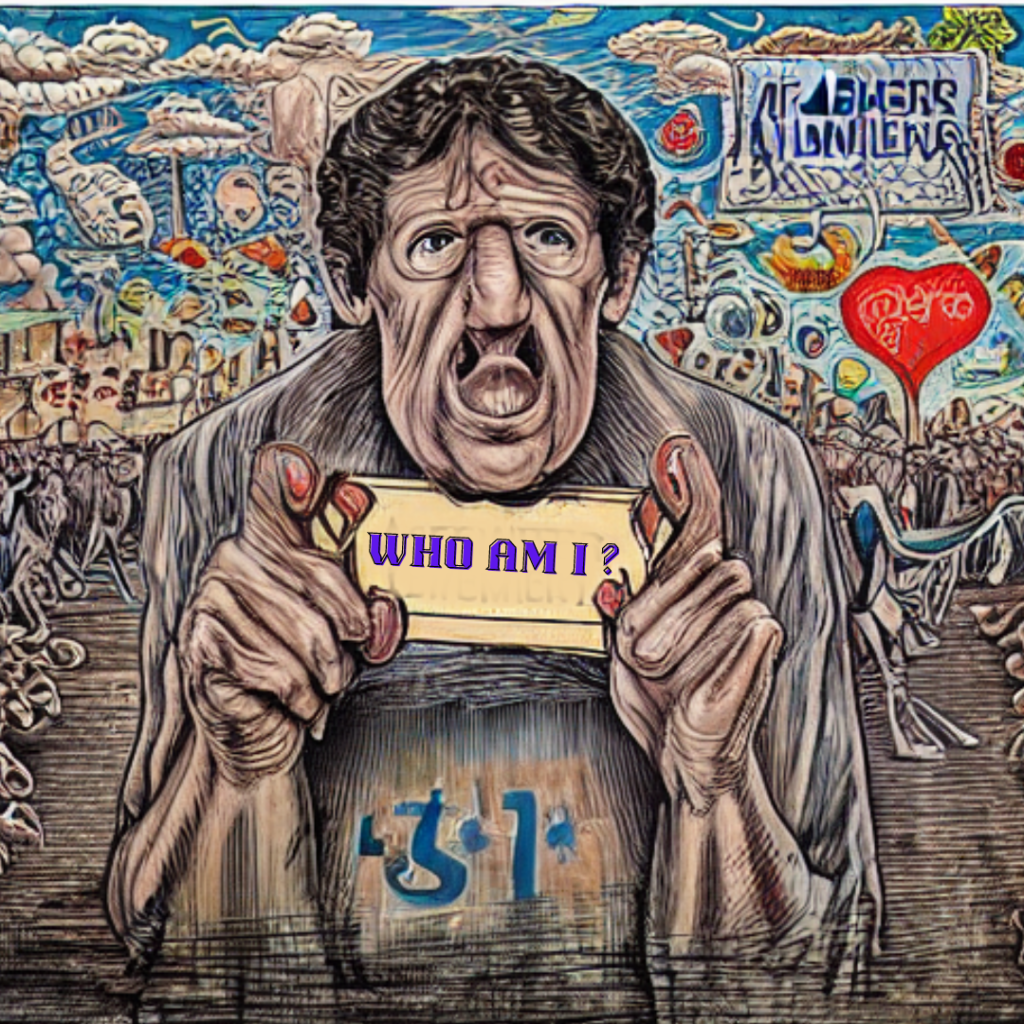
It can be easy to overlook things when you are close to someone who is seriously ill. When a loved one is diagnosed with Alzheimer’s, it can be challenging to understand their feelings and spot the warning signs. This article is about recognizing, combating Alzheimer’s.
However, educating yourself about dementia may help you in several ways. Firstly, you may be able to detect the disease earlier and access treatments that can slow its progression.
Secondly, detecting the disease will better equip you to understand and communicate with your loved one. Finally, you may be able to provide practical support and assistance.
The most common warning signs of dementia include changes in mood or behavior, difficulty communicating, memory loss, problems with everyday tasks, and changes in appearance or personal hygiene. Suppose you notice any of these changes in a loved one. In that case, it is crucial to seek professional advice as soon as possible.
Read About Parkinson’s Disease
Look For These Signs Of Alzheimer’s Disease
Personality Changes
As a family member, you may notice changes in your loved one before an official diagnosis of Alzheimer’s disease. In its early stages, your loved one may become more moody or irritable and withdrawn from activities they once enjoyed.
They may have a shorter temper and less control over their emotions. You may also notice that they are less thoughtful and considerate of others, leading to easily misinterpreted as rude comments.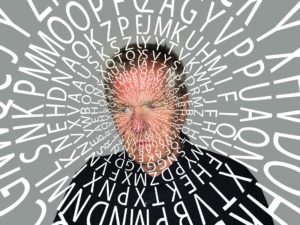
As the disease progresses, your loved one will have increasing difficulty recognizing friends and family members. They may also forget recent conversations or events. While these changes can be challenging to cope with, it is essential to remember that your loved one is still the same person with different needs.
Memory Loss
One of the first things people notice when they or their loved ones start to experience Alzheimer’s is that their memory seems to be failing them. This is because memory is one of the first cognitive functions to be affected by the disease.
As the disease progresses and brain cells die, other cognitive functions such as judgment, reasoning power, and abstract thinking will also decline. People with Alzheimer’s may also start to misplace things and use wrong names for people who have been known for years.
Additionally, problem-solving abilities and language skills will deteriorate. As the disease takes its toll, even simple tasks such as remembering appointments or arrangements can become difficult. In its early stages, Alzheimer’s may cause people to forget what they have read or seen soon after they have experienced it.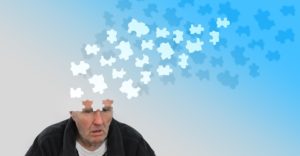
While these early signs of the disease may be subtle, they indicate something is wrong. If you or someone you love is showing any of these symptoms, it is essential to see a doctor as soon as possible.
Confusion
People with Alzheimer’s disease often have trouble changing activities and can become lost when encountering new environments. They may have difficulty following directions. This confusion also causes memory loss about their past, especially about childhood experiences.
It’s important to note that these changes in personality and memory take a long time to go unnoticed.
As the disease progresses, the person with Alzheimer’s may struggle with language and communication. They may also experience hallucinations, delusions, and paranoia.
The progression of Alzheimer’s disease is different for each individual, but eventually, the person with Alzheimer’s will need 24-hour care. There is no prevention or cure for Alzheimer’s disease, which is fatal.
But, treatments available can help improve the quality of life for the person with Alzheimer’s and their caregivers. Early diagnosis and intervention are essential for optimal treatment.
Changes In Mood
As anyone who has watched a loved one have Alzheimer’s disease knows, the physical and mental toll it takes on the patient is severe.
But it’s not just the sufferer who is affected. The disease also takes an emotional toll on caregivers and family members.
Depression is common among those caring for someone with Alzheimer’s, as is anxiety.
But sometimes, the patient does not seem depressed. Irritability may be noted early on too. It’s hard to know if this is connected to your feelings because it’s harder for them to express thoughts and feelings.

Moods may shift without apparent reason. Irritability may occur when the person wants to stay in their routine and is disappointed to stop and change it. Caregivers need to be patient and understanding, even when it feels like they are being ignored or mistreated.
Watching a loved one deteriorate mentally and physically is one of the most challenging things a person can go through. But patience, love, and care make it possible to make the best of a difficult situation.
Behavior
The patient appears sad and uninterested in anything anymore. They may also do things out of character, such as being rude or hostile for no apparent reason. Restlessness does not seem connected to any activity, and the person walks around with a nervous mannerism (hand wringing, pacing, rocking ).
Some people become incredibly passive, resisting help because they don’t want anyone else touching their belongings.
They prefer isolation from family members even if they are well known and liked.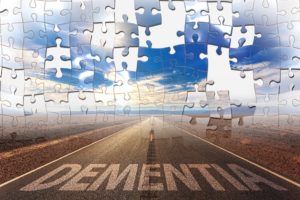
This change in moods and behavior may also result from the disease. Still, it is essential to note that this is not necessarily true. Some people who are depressed experience these types of mood changes long before dementia develops.
Alzheimer’s disease can also cause patients to withdraw from religious or spiritual activities that were once important to them. This may happen because the disease causes them to question their beliefs or because they no longer understand the meaning of the activities.
For some people, this loss of faith can be devastating. Suppose you are the caregiver of someone with Alzheimer’s disease. In that case, it is vital to be aware of these changes in mood and behavior so that you can provide support and understanding.
Confusion About Time
A person with Alzheimer’s disease often has difficulty understanding the season, day, or year.
They may believe it is always winter, despite clear evidence. They also may not know what happened during specific periods of their lives.
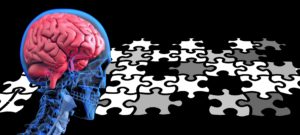
This can be confusing and frustrating for the person with Alzheimer’s and their loved ones. However, actions can be taken to help ease this confusion. For example, try to keep a consistent routine and use visual cues to help the person orient themselves. It’s also important to be patient and avoid arguing with the person about what they believe.
Remember, they are not trying to be difficult; they simply struggle to make sense of a confusing and often frightening world.
Difficulty Communicating
When diagnosed with Alzheimer’s, it is crucial to know that their language skills may deteriorate over time.
Although they may continue to babble, their words will become fewer and further apart as the disease progresses.
In addition, they may begin to repeat themselves, even after being answered. Sometimes their speech will become unclear, or they may start speaking a foreign language.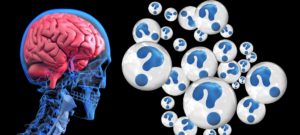
Additionally, the disease can affect their ability to write (although this is rare).
When caring for someone with Alzheimer’s, it is essential to be patient and understanding. Their communication skills will decline, but there are ways to still connect with them on a meaningful level for both of you.
Difficulty Performing Tasks
Over time, a person with Alzheimer’s will have more difficulty doing things for himself, such as dressing well, fixing meals, and using transportation.
It’s hard to know how long this takes because there is so much variety from one person to another. This problem with performing activities of daily living comes on gradually – months or years before dementia develops.
In the early stages of Alzheimer’s, a person may have difficulty remembering how to do simple tasks like turning off the stove or where they put their keys.
As the disease progresses, they may need help with more complex tasks such as balancing checkbooks or driving.
Ultimately, they will require 24-hour care as they are unable to perform any activities of daily living on their own.
While this decline can be difficult to witness, it is essential to remember that the person with Alzheimer’s is still the same person you’ve always known, just with a disease slowly robbing them of their abilities.
Memory Problems
It can be hard to remember things that just happened or recent conversations if you have Alzheimer’s.
The person with the disease may believe they had done something in the past when it was someone else.
Sometimes, memories of earlier events are more explicit than those of more recent ones.
Problems with memory include:
- Not remembering how to do everyday tasks like cooking.
- Using the telephone.
- Dialing a phone number.
Also, some people have trouble visualizing objects (seeing them rather than just remembering their names).
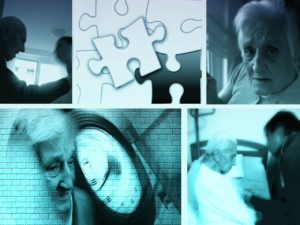
Patients may misplace daily items and become very upset when they cannot find them. This may lead to strange behavior as search efforts increase, for example, tearing apart a couch cushion for a lost item.
If you have Alzheimer’s, you must talk to your doctor about ways to help you manage your symptoms.
There is no one-size-fits-all approach to managing Alzheimer’s disease. Still, treatments and strategies can help improve patients’ and caregivers’ quality of life.
Problems With Judgment And Reasoning
A patient with Alzheimer’s may have trouble making plans or solving problems. They may ask the same question repeatedly, although it just got answered.
Some people can no longer reason precisely compared to their past mental capacity. They seem stuck in one thought process and cannot change it to fit a new situation.
The ability to see the total picture is often affected too, so these patients may find it difficult to understand how the bits of information they know relate.
Consequently, patients with Alzheimer’s disease often have difficulty understanding new information or instructions. They may also have trouble with familiar tasks, such as getting dressed or eating. Although Alzheimer’s disease affects each person differently, these cognitive changes can devastate the patients and their families.
Visual-Spatial Difficulties
People with Alzheimer’s may have trouble judging distances between objects or correctly identifying an object by touch alone.
This means that someone with this type of dementia may become confused about their location at any given time.
Also, the person may have trouble correctly identifying an object by touch alone. As a result, people with Alzheimer’s may need assistance to stay safe.
For example, they may need help navigating their home or remembering to take their medication.
Additionally, it is crucial to provide support and understanding to people with Alzheimer’s, as they may become agitated or confused. Providing care and assistance can help people with Alzheimer’s live safely and comfortably.
Changes In Personality
One of the most challenging things about Alzheimer’s disease is how it can change a person’s personality.
Those who have always been suspicious and distrusting others can become even more so as the disease progresses.
For instance, they may also become emotionally inappropriate, laughing loudly during a sad occasion.
People with dementia sometimes become more energetic and talkative, determined to do things on their terms. They might start singing aloud in public places and talking to strangers if they were quiet.
This behavior can lead to personal safety problems. In any case, a family member’s response should be calmness and encouragement of the activity, which calms them down rather than angering them further.
Alzheimer’s disease is a terrible condition that not only robs a person of their memories but also of their very personality. It is hard for the sufferer and their loved ones to adjust to these changes, but it is vital to remain calm and understanding.
Mood Changes
Be on the lookout for changes in how a person with Alzheimer’s disease feels.
They may become more easily sad, anxious, and fearful than before. This is because they may have trouble dealing with problems that they could handle without pain in the past.
Sometimes these feelings lead to depression and suicide attempts. The patient’s family must learn how to take those behaviors early on to avoid becoming more significant over time.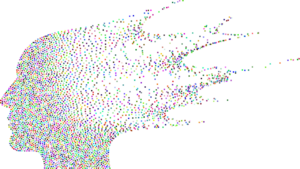
Early intervention can make a big difference in the course of the disease. Depression is a common but treatable symptom of Alzheimer’s disease.
Family members should watch for signs of depression, such as withdrawal from activities, changes in sleep or eating habits, fatigue, and expressions of negative self-worth.
Talk to their doctor if you are concerned that your loved one may be depressed. There are many effective treatments available for depression. With proper diagnosis and treatment, people with Alzheimer’s disease can live entire and satisfying lives.
Problems Sleeping Or Eating
A person with Alzheimer’s disease may not be able to sleep at night, although there is much variation.
Some people stop eating regularly; others eat more frequently and just eat less of their usual meals. Diets tend to change during this disease as patients eat foods they are used to or things that remind them of happier times. They may also be taking less satisfaction in food because their appetite is affected by the lack of interest and pleasure in life.
Alzheimer’s disease affects different people differently, but these are some of the most common changes. As the disease progresses, patients may lose the ability to care for themselves and will need help with activities of daily living.
This can be difficult for the patient and their family members. However, many resources help everyone adjust to this new reality.
Changes In Behavior
Alzheimer’s disease can be highly debilitating, not only for the sufferer but also for their loved ones.
One of the most challenging aspects of the disease is how it can change a person’s personality and behavior. Patients may become anxious, nervous, or angry, and some lose control of their impulses, leading to unwise decisions.
They may also get easily upset when they cannot perform tasks that they could previously do, such as remembering how to dial a phone number.
Frustration can set in when others don’t understand what they want, even though they could explain it perfectly well just moments before. People with Alzheimer’s disease may feel reclusive and want to be alone more than before.
While all of these changes can be very difficult to manage behavioral symptoms, it is essential to remember that the person with Alzheimer’s is still the same person you have always known and loved. You can help them through this challenging time with patience, understanding, and support.
Changes In Vision
It is common for older adults to become nearsighted (myopic) as they age, but this can happen earlier or progress faster in Alzheimer’s disease.
The person may also see less clearly, becoming farsighted (hyperopic). Sometimes there is “tunnel vision,” where the person has a significant loss of peripheral vision.
There can also be blindness in one eye due to a stroke associated with the disease. Because of these vision changes, people with Alzheimer’s may have difficulty recognizing faces, reading, and navigating their environment.
As the disease progresses, they may become completely blind.
Suppose you are caring for someone with Alzheimer’s disease. In that case, it is essential to be aware of these changes in vision and take steps to ensure their safety. For example, you may need to help them orient themselves in their home or keep track of their medications. If you have any concerns about their vision, please talk to their doctor.
Changes In Hearing
Many people who have Alzheimer’s disease also have some degree of hearing loss.
Patients often lose their ability to hear high-pitched sounds first, as these frequencies are affected by changes in the inner ear. Low-pitched sounds are next to go, and finally, the brain stops receiving any helpful information through hearing.
This communication breakdown can be frustrating for patients and loved ones alike. In addition, patients may become withdrawn and isolated as they struggle to follow conversations.
Thankfully, there are ways to help Alzheimer’s patients stay connected to the world around them. Assistive listening devices can amplify sound, making it easier for patients to follow conversations.
In addition, caregivers can use simple gestures and expressions to help patients understand what is being said. These steps can help Alzheimer’s patients stay engaged with their world.
Changes In Smell
It is common for patients with Alzheimer’s disease to lose their sense of smell (hyposmia).
This can happen as early as eight years before a diagnosis is made.
When someone misplaces his glasses or keys, you shouldn’t assume they have Alzheimer’s. However, if this occurs repeatedly, a doctor should be consulted because there might be another cause for the problem.
Scientists have not yet determined why this loss of smell occurs in Alzheimer’s patients. Still, they believe it may be due to damage to the olfactory neurons. These neurons are located in the nose and play a vital role in the sense of smell.

Damage to these neurons can result in a decrease in the ability to smell Odors. The loss of smell can profoundly impact a person’s quality of life.
It can lead to a loss of appetite, weight loss, and an inability to enjoy favorite activities. In some cases, it can even lead to depression.
Suppose you or someone you know is experiencing problems with their sense of smell. In that case, the person must see a doctor so that the cause can be determined and treatment can be started if necessary.
Other Problems
Sometimes, older people have other physical or mental conditions that complicate care. For instance, mild cognitive impairment, diabetes, Parkinson’s disease, strokes, heart and lung disease, bladder infections, and incontinence can affect a patient’s daily living.
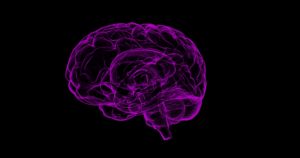
Some of these conditions are also frequent complications in Alzheimer’s disease. As a result, caregivers must be aware of the potential for complicating factors when caring for elderly patients.
They should also be familiar with the warning signs of these conditions to seek medical help if necessary. By understanding the potential for complications, caregivers can provide better care for their patients and help them to maintain their quality of life.
Dementia
Dementia is a loss of cognitive function that occurs with certain medical conditions.
Alzheimer’s disease is the most common type of dementia, but there are other types. Early onset and severe cases are the most serious.
The available medications can only help to ease symptoms, not cure the disease or halt its progression. No one test can diagnose dementia, so doctors look at a combination of medical history, physical exams, laboratory tests, and brain imaging studies. 
If you are concerned that you or someone you know may have cognitive decline, it is vital to see a doctor as soon as symptoms develop. With early diagnosis and treatment, some people with dementia can live relatively everyday lives for many years. Left untreated, however, the disease will eventually progress to the point where the person is entirely dependent on others for their care.
In its late stages, dementia can devastate the person suffering from the disease and their loved ones. No one should have to face dementia alone. There are many resources available to help people cope with this condition. Talk to your doctor today if you think you or someone you love may have dementia. You can make the best of a problematic situation with proper diagnosis and treatment.
The Risk Factor Of Developing Alzheimer’s Disease
Although the root cause of developing Alzheimer’s disease is not yet fully understood, we do know that it involves abnormalities in brain proteins that disrupt neuronal processes and lead to the release of toxins that further damage neurons. This is the most significant known risk factor in developing the disease.
This eventually causes the loss of connections between neurons, leading to cell death. Alzheimer’s disease is often associated with genetic, lifestyle, and environmental influences.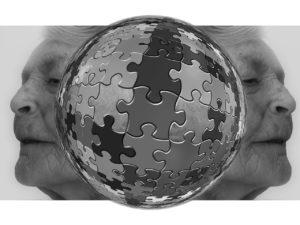
However, in rare cases, Alzheimer’s can be caused by a single genetic mutation that almost guarantees that the person will develop the disease by middle age.
Regardless of the cause, Alzheimer’s is a progressive disease with no cure. However, researchers are working tirelessly to find new treatments and therapies that may one day lead to a breakthrough.
How does Alzheimer’s disease affect the brain?
Alzheimer’s disease is a progressive brain disorder that slowly destroys memory, thinking skills, and the ability to perform simple tasks.
Scientists are still trying to understand all the complicated changes in the brain with Alzheimer’s disease.
They know that symptoms can occur for at least 3-5 years before noticeable symptoms begin. Symptomatic changes have been observed in Alzheimer’s disease early on, including abnormal accumulations of proteins forming amyloid plaques or tau tangled. Healthy neurons have ceased to function and have lost connections.
Other complex neurological changes may also affect Alzheimer’s disease. The first damage appears in the hippocampus and the entorhinal brain, which are parts of the brain vital for memory. As Alzheimer’s disease progresses, more and more damage occurs in other brain regions. This eventually leads to widespread cell death and shrinkage of brain tissue.
Scientists are analyzing the complicated changes in the brain that cause Alzheimer’s.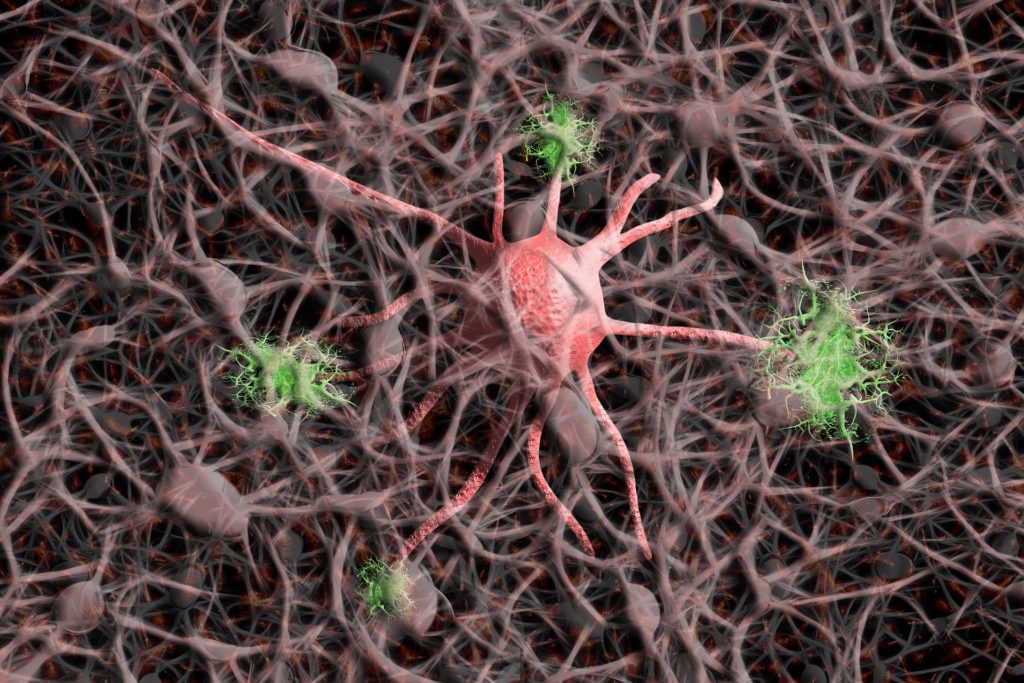
Early onset Alzheimer’s disease is diagnosed when someone is under age 65 and develops dementia symptoms such as memory loss, Language problems, and disorientation issues.
Late-onset Alzheimer’s disease is the most common type of Alzheimer’s disease. When someone is over 65 and developing dementia symptoms, scientists believe that a combination of genetic and lifestyle factors plays a role in developing late-onset Alzheimer’s disease.
Currently, there is no way to stop or reverse the progression of Alzheimer’s disease. However, scientists continue to research in hopes of finding a way to prevent or delay the onset of Alzheimer’s disease, as well as develop treatments that can improve the quality of life for those living with this devastating disease.
How is Alzheimer’s Disease Diagnosed?
Several methods and tools have been developed for diagnosing memory impairment in people. For diagnosis, doctors can use a test to get a better insight into a person’s memory and cognition if they’re not sure what’s going on.
Those who suffer memory loss should consult the doctors about whether their memory or thinking is affected by early Alzheimer’s or other causes, like stroke, tumors, Parkinson’s disease, or other conditions that may have caused this condition.
Some of these conditions are treatable or even reversible. However, for those who have Alzheimer’s disease, there is currently no cure. While treatments can help slow the progression of the disease, the best way to manage Alzheimer’s is through prevention.
Many lifestyle factors have been linked to a reduced risk of Alzheimer’s, such as maintaining a healthy diet, staying active, and keeping mentally and socially engaged.
How Is Alzheimer’s Disease Treated
There is no definitive answer to how best to treat Alzheimer’s Disease. However, there are a variety of treatments that may help to change the course of the disease or help to manage symptoms. Medications and non-drug treatments are available, and it is vital for individuals with Alzheimer’s and their caregivers to work together to find the best option for them.
Some common medications used to treat Alzheimer’s Disease include cholinesterase inhibitors, memantine, and Rivastigmine. These medications work by helping to improve memory and thinking skills, and they can be used alone or in combination with each other. It is important to note that these medications may not work for everyone and may have side effects such as nausea, vomiting, diarrhea, and dizziness.
Non-drug treatments for Alzheimer’s include living a healthy lifestyle and therapies like music or art therapy, which can help stimulate the brain and improve mood. Exercise and staying physically active can also be beneficial, as they can help improve memory and overall health. Social activities are also important, as they can help reduce feelings of isolation and depression.
Recognizing, Combating Alzheimer’s
Alzheimer’s disease is a devastating and incurable condition that causes progressive memory loss and impairment of other intellectual abilities. It is the most common form of dementia, affecting more than 5 million Americans.2 The disease begins years before symptoms appear. By the time they are noticed, significant brain damage has already been done.
The human costs of Alzheimer’s are enormous. The sufferers experience a decline in their quality of life as they lose their independence and ability to care for themselves. They often become agitated and frustrated and can no longer enjoy the activities they once loved. Family members must provide constant care, which can be physically and emotionally demanding.

Alzheimer’s also has a significant impact on the economy. The direct costs of caring for those with Alzheimer’s are estimated at $236 billion annually in the United States alone. This figure does not include indirect costs, such as lost productivity and income. Alzheimer’s is thus a significant burden on society as a whole.
We must do more to find a cure for Alzheimer’s disease and encourage healthy aging. It is a scourge taking an increasingly heavy toll on individuals, families, and society. We must continue to fund research into this devastating condition and work to find treatments that can halt or reverse its progress.
